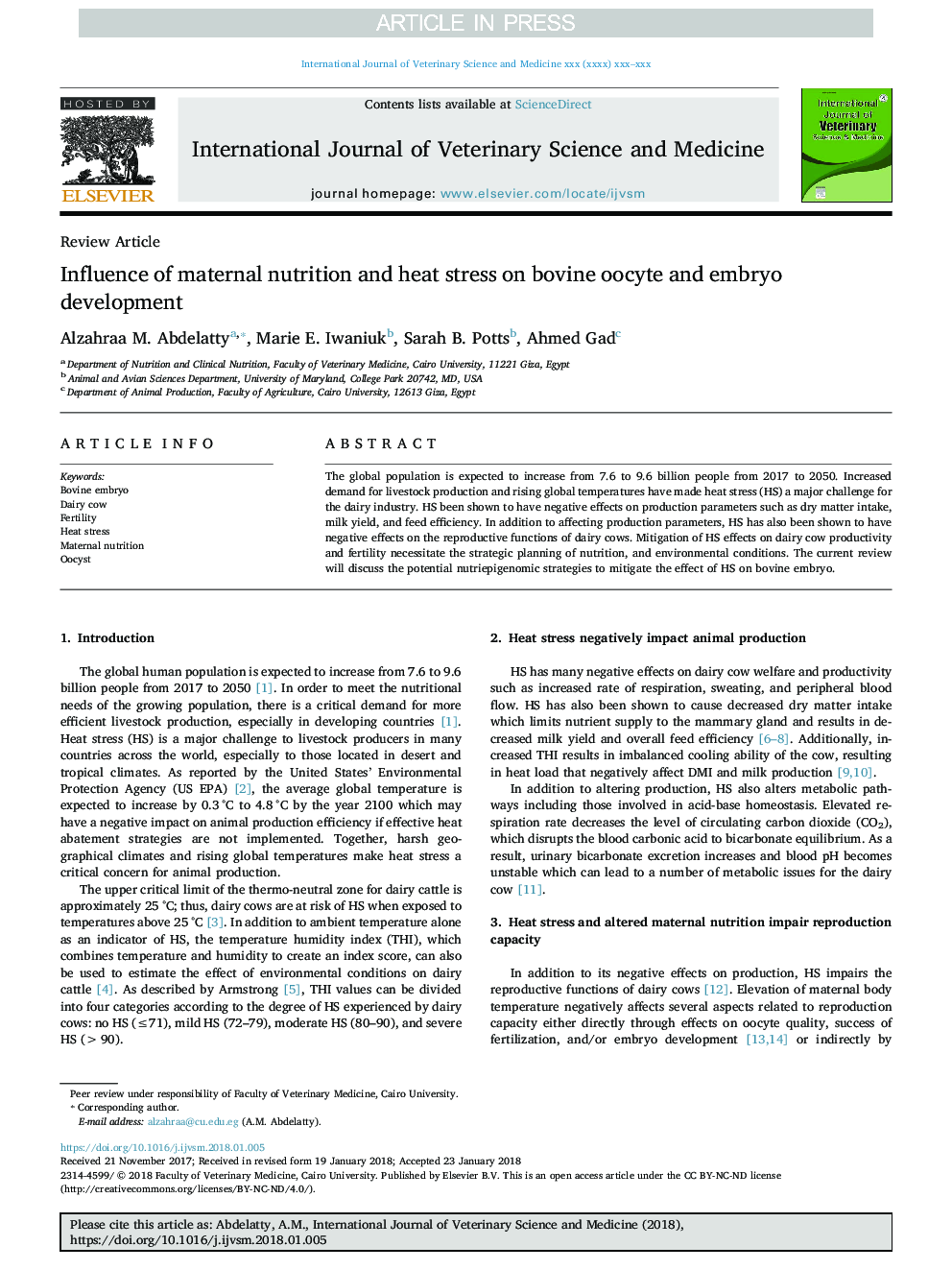| Article ID | Journal | Published Year | Pages | File Type |
|---|---|---|---|---|
| 8482253 | International Journal of Veterinary Science and Medicine | 2018 | 5 Pages |
Abstract
The global population is expected to increase from 7.6 to 9.6 billion people from 2017 to 2050. Increased demand for livestock production and rising global temperatures have made heat stress (HS) a major challenge for the dairy industry. HS been shown to have negative effects on production parameters such as dry matter intake, milk yield, and feed efficiency. In addition to affecting production parameters, HS has also been shown to have negative effects on the reproductive functions of dairy cows. Mitigation of HS effects on dairy cow productivity and fertility necessitate the strategic planning of nutrition, and environmental conditions. The current review will discuss the potential nutriepigenomic strategies to mitigate the effect of HS on bovine embryo.
Related Topics
Health Sciences
Veterinary Science and Veterinary Medicine
Veterinary Medicine
Authors
Alzahraa M. Abdelatty, Marie E. Iwaniuk, Sarah B. Potts, Ahmed Gad,
